Where do guns used in Savannah crimes come from? Data provides answers — and begs questions
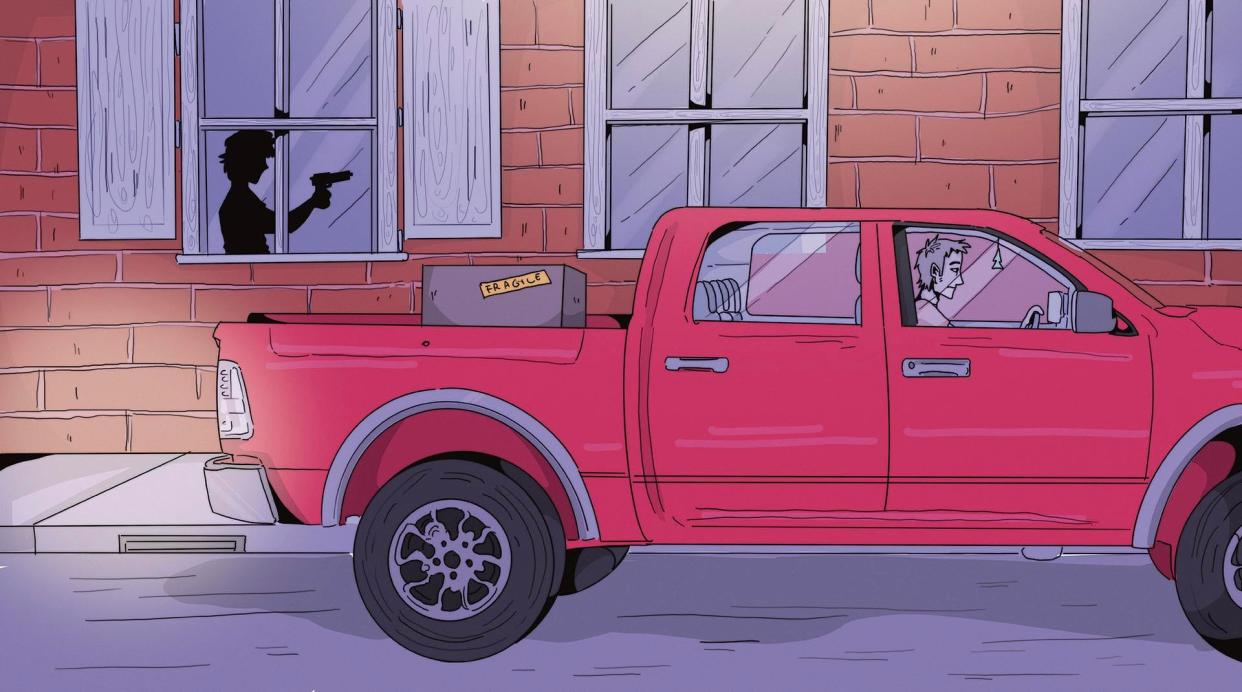
- Oops!Something went wrong.Please try again later.
Most guns used in crimes in Savannah in 2022 were bought legally within the state, according to an internal Federal Bureau of Alcohol, Tobacco, Firearms and Explosives (ATF) spreadsheet obtained by the Savannah Morning News.
Of the 680 guns recovered in Savannah in 2022 by local law enforcement agencies and traced by the ATF:
74.7% of the firearms were traced to Georgia-based Federal Firearms Licensed (FFL) dealers, including gun shops, pawn shops and sporting goods stores; 25% were purchased out-of-state.
47.5% were traced to 14 Chatham County-based firearms dealers.
56 were traced to Georgia-based gun shows
52 of the guns recovered in 2022 were traced to individuals, who the ATF refer to as "kitchen-table dealers"
36 were classified as ghost guns, which are homemade firearms created by assembling pieces for a fully functioning weapon. They can be made using 3-D printers or kits purchased online or at gun shows and are virtually untraceable. Thirty-four of the 36 ghost guns recovered in Chatham County were recovered from one person.
While it's unclear how many of those firearm purchases were illegal, the data shows that a small number of local gun dealers sold a high volume of firearms that ended up in the hands of criminals.
Matthew Beccio, former resident agent in charge of ATF Savannah Field Office One, said, “There are some [guns] coming in from out of state and there are some coming in from overseas, but the majority of the guns that have been used in crimes here are guns that either started locally here, or somewhere in this region"
Tracing information is not public largely due to an amendment that the gun lobby pushed through Congress in 2003 called the "Tiahrt Amendment," attached to the 2003 federal appropriations bill. In 2019, the House oversight committee on oversight and reform asked the ATF for data on gun shops, but the ATF has yet to provide that information. A House Oversight and Reform Committee letter published in April 2022 detailed how the committee obtained data on gun dealers that often have their firearms traced to violent crimes, but the names of the gun dealers remained anonymous.
“Gun violence is a public health epidemic,” said Joshua Scharff, general counsel and director of programs at the nonprofit gun violence prevention organization Brady. “And anyone who studies an epidemic is going to look at the word origin of that epidemic in order to find solutions. The fact that we as a public can't do that, because trace data is not shared publicly, sets us back.”
The ATF Savannah spreadsheet, which includes the names of the gun dealers among other details, provides a closer look at the link between criminal activity and legal gun sales.
“In this case, you have a trove of data," said Scharff. "It's incredibly important data, and it's something that's really hard to get your hands on.”
While providing some clarity on the origins of guns used in crimes, the data also raises questions. It’s unclear, for example, how many firearms recovered by the ATF were “straw purchases,” when someone purchases a gun legally on behalf of another who is prohibited from making the purchase themselves. Also unclear is how many firearms were bought legally by an individual, then stolen from a car or residence — a common occurrence according to local police departments.
The ATF did not respond to multiple calls for clarification and a detailed list of questions sent by email.
ATF Savannah rarely revokes gun dealers' licenses
At the federal level, the ATF is the sole entity responsible for inspecting 75,000 federally licensed firearms dealers nationwide to ensure they are following federal, state and local laws. After a 2004 Office of the Inspector General (OIG) report found that the ATF was failing to conduct enough FFL inspections, the ATF started conducting more FFL inspections, according to a 2013 OIG report. But, in Georgia, public data reveals that the ATF is failing in recent years to revoke FFLs, even for repeat offenders.
The Brady Gun Store Transparency Project was launched in January 2022 after a flurry of lawsuits against the ATF by Brady, which was established by White House Press Secretary James Brady after he and then-president Ronald Reagan were shot in an assassination attempt in 1981.
In the United States, the Brady database shows that firearms dealers rarely have their licenses revoked after an ATF inspection: In 2020, the ATF inspected 5,827 FFL dealers; 0.7% had their licenses revoked.
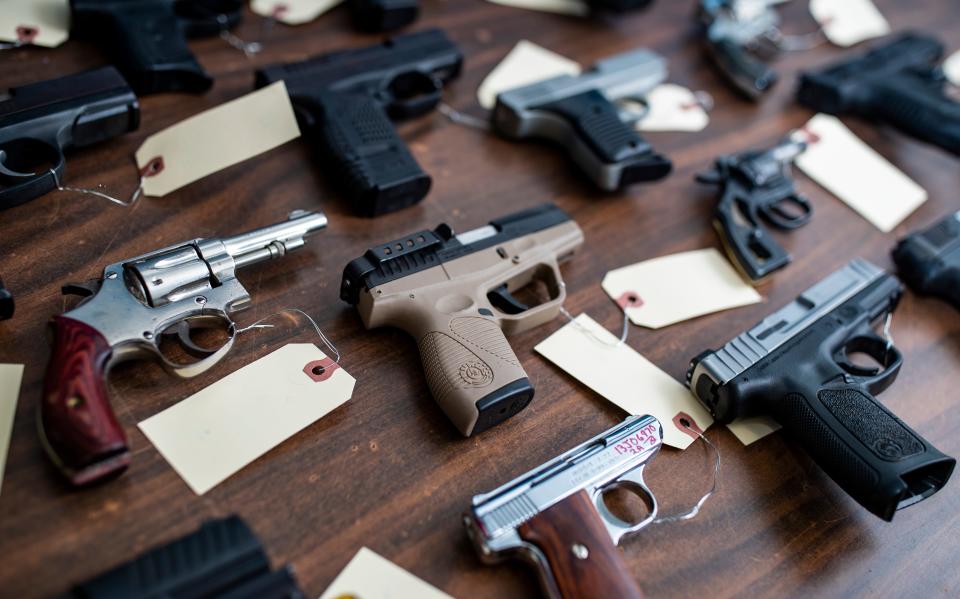
In Georgia, that trend is acute. According to the Transparency Project, between 2016-2020, ATF Industry Operations Investigators completed at least 182 ATF inspection reports that led to 156 warning letters and 22 warning conferences. Despite the violations, within that same time frame, the ATF did not revoke any FFL’s in Georgia.
In a phone interview, Lindsay Nichols, federal policy director for the Giffords Law Center to Prevent Gun Violence, said the ATF being very lenient towards gun shops that are violating the law has been a long-term problem.
Nichols gave three reasons for that leniency.
First, The ATF lacks the authority to shut down a gun dealer unless it can prove the violations are “willful," such as transferring firearms to a prohibited person, failing to conduct a required background check, falsifying records, failing to respond to a trace request, or refusing to allow an ATF inspection.
In 2021, President Joe Biden issued an executive order to strengthen this regulation with a zero-tolerance policy that allows the ATF to revoke the licenses of dealers for a first-time violation of federal law.
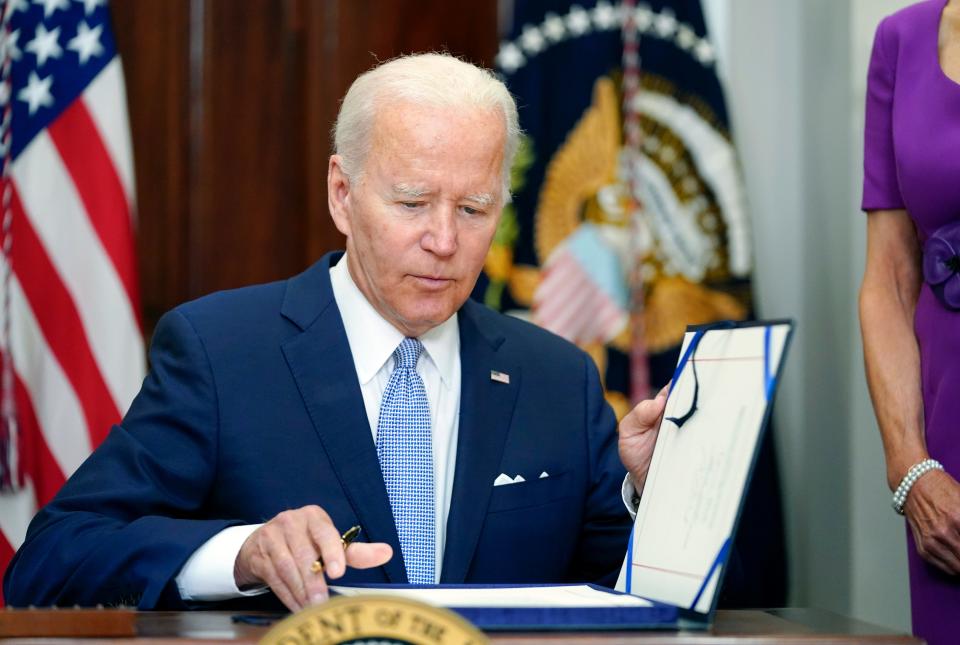
“Another is that the ATF is simply reluctant to shut down gun stores because they are afraid of blowback from the industry,” said Nichols. “Very powerful people, including members of Congress, have very strong ties to the industry.”
Nichols added that the ATF hasn’t been funded at the levels it needs to be to conduct inspections and follow through on issued warnings.
Brady's research supports Nichols's assertion. According to the Transparency Project, "In a 2022 report, ATF disclosed that 85% of active FFLs did not receive a compliance inspection in each year between 2016 - 2020; that the total FFL population increased by about 22% between 2000 - 2020 while ATF resources and personnel increased only marginally."
Said Scharff, the ATF “simply doesn't have the capacity to provide a real robust system of oversight for gun dealers throughout the country.”
In the Fiscal Year 2023 budget proposal, Biden proposed a 13% increase to the ATF’s budget "so ATF can hire new agents and investigators to help cities trace firearms and analyze ballistics from crime scenes," although it is not clear how many new ATF agents and investigators would be added in Georgia or Chatham County, if any. In other states, state police departments supplement the ATF’s resources, inspecting federal firearms licensed dealerships, but not so in Georgia.
Supporters of the ATF, however, argue that it’s not the ATF’s goal to shut down FFL storefronts — and it never has been.
Brandon Maddox, CEO and owner of Silencer Central, a manufacturer of firearm noise suppressers and an expert on ATF regulations, said, “My experience is that if you try to sit down with ATF and ask them to help you work through situations, you have much better luck."
Wally Nelson was an ATF inspector, now called an Industry Operations Investigator (IOI), from 1972 through 1978. In that role, he conducted inspections of FFL stores. From 1997 through 2005, he served as a deputy assistant director of the agency.
“In the '70s, I recommended revocation of some [federal firearm] licensees, but it's never been particularly common,” Nelson said.
Doling out revocations has become even less common for the ATF in recent years: In 2009, ATF adopted a new policy that gives supervisors "tremendous discretion to elect alternatives to revocation, allowing non-compliant FFLs to stay in business," according to Brady.
Rather than outright revoke their licenses, the ATF’s goal when conducting inspection of FFL dealers, Nelson said, “always was to get FFL to get them to comply with the law to the greatest extent possible.
“The inspection process is a lot more professional than when I started in the 1970s. The inspections are a lot more thorough, there's no doubt about it.”
State gun laws don't help
If federal laws aren’t working to restrict the sales of firearms by rogue gun dealers, Christian Heyne, the vice president of policy and programs at Brady, noted that Georgia’s lenient gun control laws don’t help the situation.
Even before Gov. Brian Kemp signed the permitless carry law in 2022, Georgia was one of five states that allowed people to buy guns even if their record contained violent or gun-related misdemeanors, a serious mental condition, documented patterns of drug and alcohol abuse, and/or juvenile offenses. The state's “reciprocity law,” also signed in April 2022, allows out-of-state residents to carry guns in Georgia if they have a concealed carry permit from another state.
“With the weakest gun laws, Georgia can't solve gun violence on [its] own, which is why we need the federal government to work,” said Heyne.
While seven states require gun registration and 34 neither require nor prohibit it, Georgia is one of nine states that prohibits gun registration.
Savannah Police Capt. George Gundich oversees the department's Strategic Investigations Unit and has two deputy task force officers attached to ATF Savannah. In this role, Gundich sees firsthand the lenient state gun control laws failing to stop criminals.
Asked how he feels after guns are repeatedly traced back to the same gun shops, Gundich said, "It's always frustrating, but that goes kind of with every crime. I can say the same thing about too many alcohol licenses. So, it's frustrating, but it's not just pawn shops."
If SPD recovers a gun at a crime scene, Gundich said, the department e-traces the gun, and then sends the information it produces ― such as who owns the gun, where it came from and how it changed hands ― to the ATF. If no gun is found at the scene but a shell casing is, SPD runs the shell casing through the National Integrated Ballistic Information Network (NIBIN) system, which is located in the Chatham County Police Department. NIBIN then attempts to match the recovered shell casing to a gun.
Other times, Gundich said, citizens will call the department, and say, "Hey, they're selling these guns illegally."
"And that's where we'll get the ATF involved so they can further look into it," said Gundich.
Despite the extensive investigative work, though, Gundich said there is only so much the police can do to crack down on rogue firearms dealers.
“There's not a lot of laws that really will hammer somebody if [the firearms dealer] were to sell a gun to you,” said Gundich. “All [the firearms dealer employee] has to say is: ‘Hey, are you a convicted felon? No? Okay, here you go.”
Gundich added, “The gun shops don't want to take the chance of losing their license because they only get one strike. It's not like a bar serving underage minors where you might get a couple of warnings. If you're selling guns to people they shouldn't, or not filing the paperwork properly, it’s pretty easy for the ATF to close them down.”
ATF Savannah not closing down local gun shops
But the ATF isn’t closing down the firearms dealers most responsible for firearms recovered at crime scenes in 2022 ― nine of the 14 firearms dealers responsible for about 44% of the crime guns recovered in Savannah in 2022 are still operating and selling firearms legally, according to the ATF's State Federal Firearms Listings and phone calls made to the companies.
The ATF traced 11% of the firearms recovered in 2022 to Welsh Pawn Shop ― the most of any federal firearms licensee. Welsh Pawn Shop has three locations in Savannah.
Since 2011, the ATF inspected the three Welsh Pawn Shop locations seven times. Five of those inspections revealed 21 violations, 13 of which were in some way related to ATF Form 4473. ATF’s website dictates that the ATF 4473 form is a six-page form used “to determine whether a potential gun purchaser is prohibited by Federal or State law from receiving a firearm.”
Largely due to escalating violence in New York City, then-Mayor Michael Bloomberg filed two federal lawsuits in 2006 against 27 total gun dealers, including Welsh Pawn Shop, that he alleged were partially responsible for selling guns later recovered in crimes. As part of the suit, Welsh Pawn Shop ultimately reached a settlement agreement.
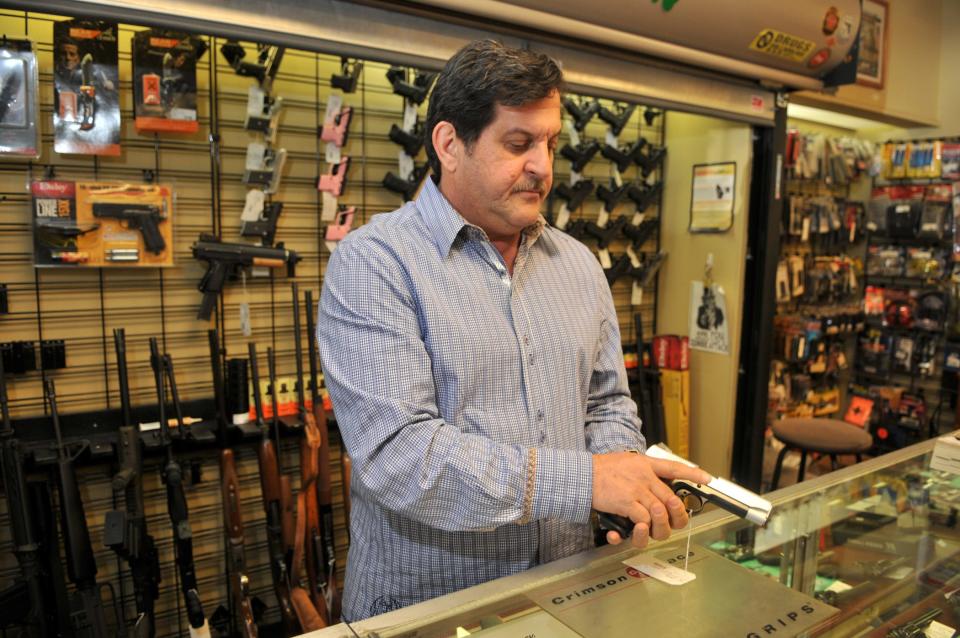
“When you consider 15% or fewer of FFLs (Federal firearms licensees) receive a warning letter, I would say it is very concerning to see three locations of a small chain all receive warning letters within a small period of time,” said Scharff.
The other federally licensed firearms dealers to which recovered guns were traced in 2022 also remain open for business: Georgia Cash America, Dean Forest Road Guns & Ammo (also called JCRL), CRC Weaponry, Palmetto State Armory, Bass Pro, Jones Gun & Pawn (also called Ma Jones LLC), Z and Son Fine Guns, Crossroads Defense Corp. and Puskas Firearms. The owner of Crossroads Defense emailed the Savannah Morning News and said the company no longer sell firearms.
Brady's database doesn't contain ATF reports of those nine firearms dealers.
Puskas Firearms, located in Richmond Hill, sold seven firearms later used in crimes. When asked how he grapples with the fact that his firearms were traced back to crimes, the owner Willie Puskas said in a phone call, "I'm pretty impressed with that number."
"Last year, I think we had a total of 30 [traced guns] and most of those were stolen out of vehicles," Puskas said. "We do a lot of undercover work with Savannah SWAT, US Marshals, ATF. I used to have a SWAT officer as a partner of mine and we did a lot of work together, and he had a very vast knowledge on what to keep on because we have about 13 cameras on the premises."
Four of the 14 firearms dealers identified have closed. Among them, Ortiz Custom Guns administratively dissolved on Aug. 11, 2021, according to business registry records. Ten of the guns recovered by the ATF in 2022, however, were sold by Ortiz in 2020.
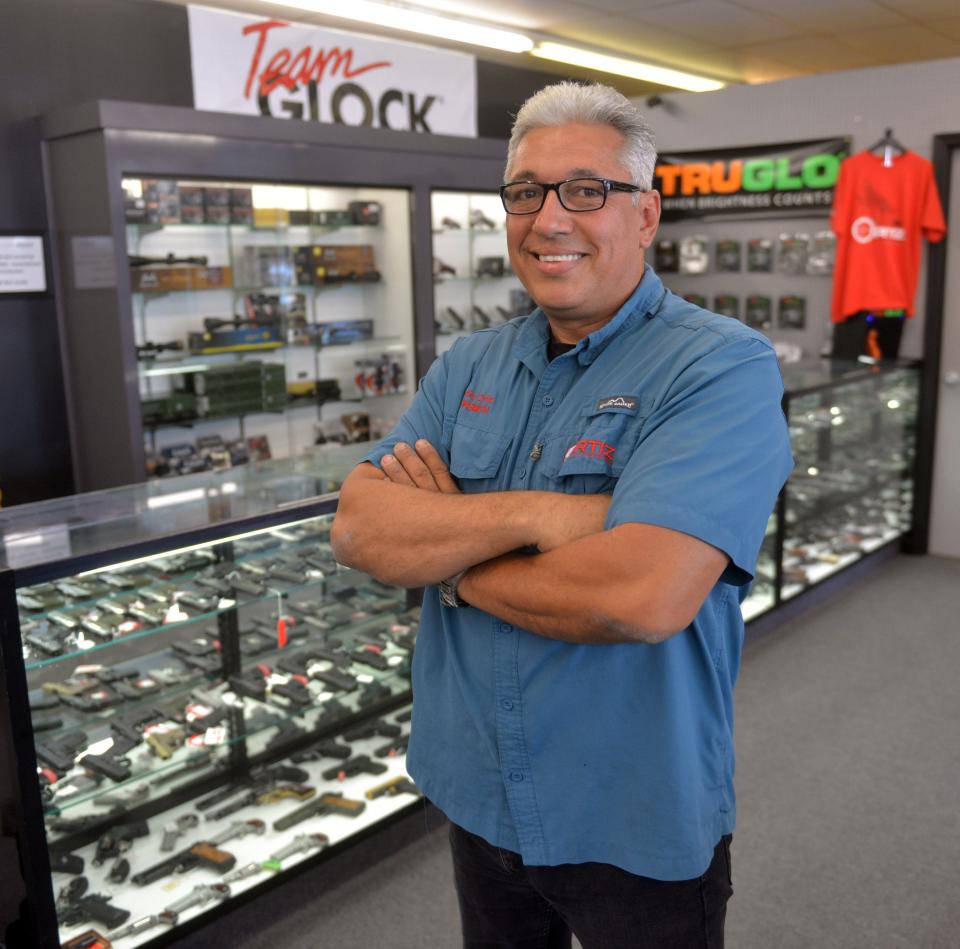
In an interview, Gundich said, “the ATF closed them up,” but the local ATF office declined to confirm whether it had a hand in Ortiz closing. In 2013, the ATF conducted an investigation into the shop, according to court records. Court records reveal that the storefront had hired a convicted felon who falsely posed as a former military officer and stole 59 firearms from Ortiz then sold them to another local firearm dealership.
After the Ortiz Custom Guns closed, its former owner Pedro Ortiz, 54, became an owner of Thunderbolt Guns - a position he served in until Nov. 21, 2022, according to public records website, LexisNexis. Thunderbolt Guns, which received its Federal Firearms License in Nov. 2006, sold 10 of the firearms recovered by the ATF Savannah in 2022. Thunderbolt Guns' FFL license expired in Jan. 2019, according to the FFL license website.
“We certainly have heard of that happening before,” Scharff said about owners launching new or moving to other gun dealerships after the ATF closed their original stores. “Whether it is that individual or a close family member starting a separate business, in our view, that type of thing really can't be allowed because the ATF is also supposed to check for hidden ownership.”
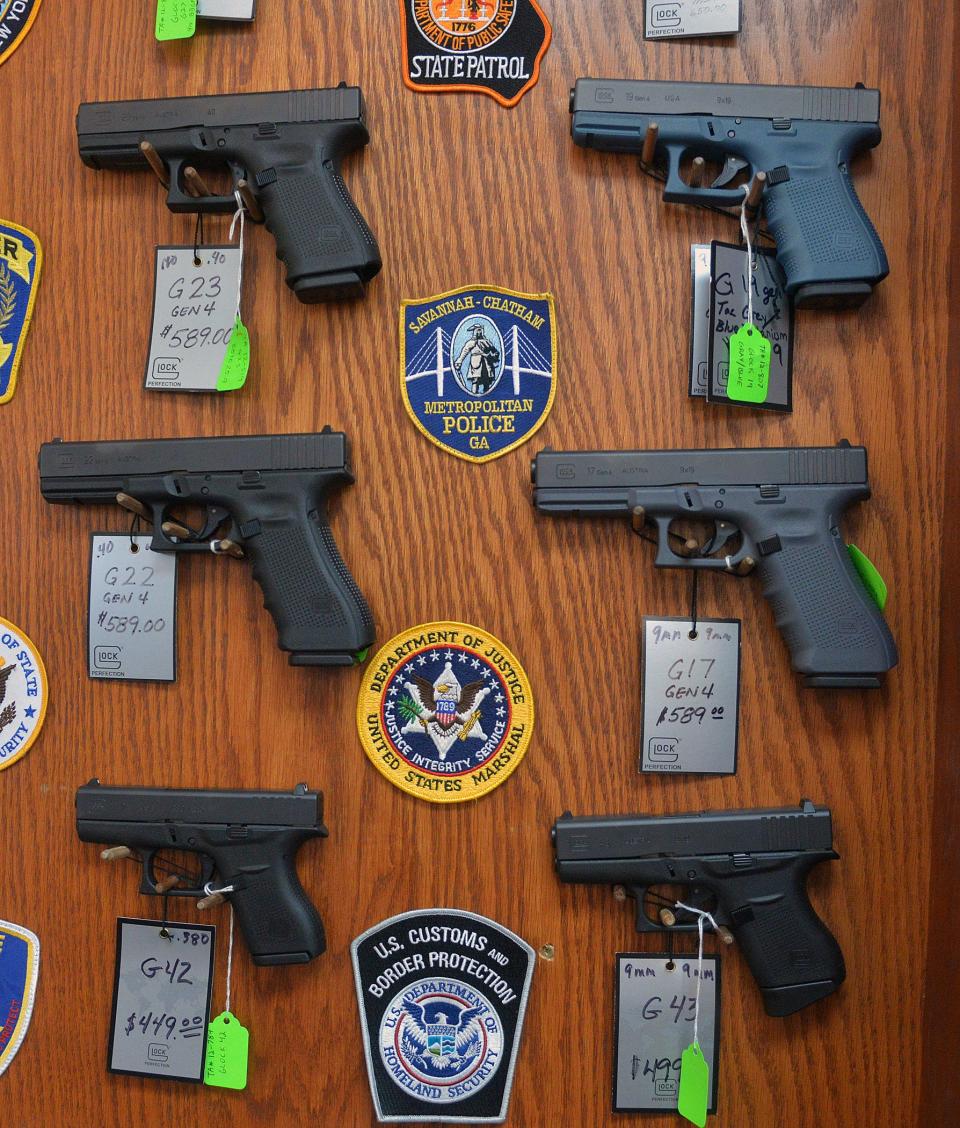
Like Ortiz Custom Guns, Thunderbolt Guns also had a history of committing federal violations. According to ATF records obtained through the Brady Gun Store Transparency Project, a 2015 ATF inspection of Thunderbolt Guns showed that the ATF Industry Operations Investigator (IOI) found five violations related to failure to properly report multiple sales of handguns and missing firearms. The ATF IOI admitted “a revocation is warranted” because of the five repeat violations, but he instead issued a warning conference because there was a low error rate for ATF form 4473.
Richard Berman, the co-owner of Thunderbolt Guns, attributed the violations to “busyness, “oversight,” “laziness,” and “carelessness.” As a result of the violations, Berman said he fired two employees for failing to keep records.
On Dec. 31, 2022, according to business registry records, Thunderbolt Guns, which had changed its name to Thunderbolt Firearms Training, closed.
Drew Favakeh is the public safety and courts reporter for Savannah Morning News. You can reach him at AFavakeh@savannahnow.com.
This article originally appeared on Savannah Morning News: Savannah gun crime analysis: Where do the firearms come from?

